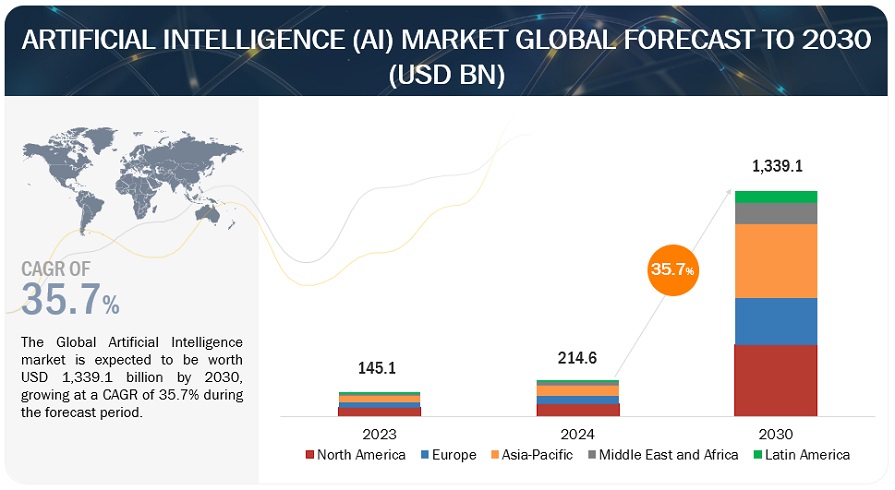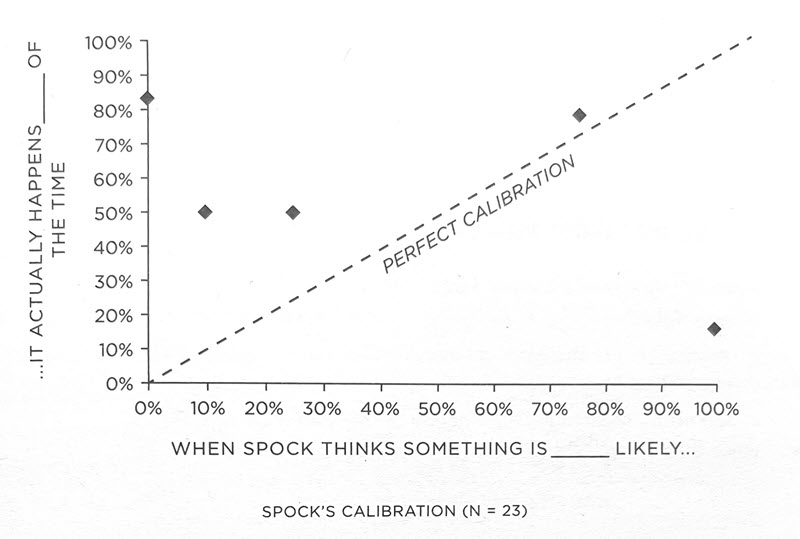In a recent conversation I was informed that the Brand & Marketing team were now allowed to use AI to create brand materials, content, and even audit one of their (smaller) websites. This enthusiasm is fuelled by the promise of personal time and budget savings. But what is at stake?
Is relying on machines overlooking humans?
In this age of data and AI, businesses are becoming ever more reliant on assessing the customer landscape based on digital spreadsheets and machine learning thinking.
This is nothing new. The corporate world is ever hungry for faster and cheaper routes to insight and decision making. MarketandMarkets.com estimates that the AI market will grow from $86.9b in 2022 to $1,345.2b in 2030.

Does this reliance on computer engines offer accurate insights to help shape the digital products of the future? We must remember that, regardless of technological advancement, there is still a human (your customer) at the end that needs to engage with an interface. But asking them directly may not yield the best insight.
The illusion of customer knowledge
Seeking feedback and insight is a natural route to improving your products and services, and the obvious way to do this is to ask your customers for feedback and what they think. But do customers truly know what they want, or is their natural response an internal process influenced by context, societal pressures, external environment, and/or personal biases?
Therefore, any insight provides a useful understanding of peoples’ perception and will let us know that a product isn’t working as well as we’d like. This is less helpful when we’re making decisions on the product design or what to do to guarantee improvement.
The Paradox of Customer Feedback
It is worth noting that our memories are not real-world recordings of the past, but is our thinking, through our own lens, of what happened previously. It is our thinking, not an accurate reality, that influences our perception of the past (our feedback) and how we predict our future (our expected needs).
Therefore, unbeknownst to customers filling in your customer survey, when talking about their experience or telling us what they want, they are actually telling you what they think they remember or want. And because it is what they think they want, there can be many influences that affect the accuracy of their answers.
Location, Location, Location
Take house buying. Often, especially for first time buyers, they have a list of must-have requirements for a their soon to be home. This list might be based on a perceived ideology of how to live, or what they see on social media, their culture and heritage, and keeping up with the trends.
What then happens, if they are lucky, is they view a house that doesn’t tick many of the boxes, but as soon as they walk through the door, they know this is ‘the house’.
You see, our true wisdom comes from deeper within, not from our overthinking minds. So, as we subconsciously intellectualise our response to a question, we’re moving further away from our intuition and the reality of what we want and need.
The Scout Mindset and Certainty
In her wonderful book, The Scout Mindset, Julia Galef challenges our certainty and introduces a calibration exercise, between how likely we feel something is against it actually happening. Perfect calibration would suggest that if we are 50% sure, then we’ll be correct 50% of the time. But nothing is perfect, especially our certainty!
The reality is likely to be quite different for each of us and is quite unlikely to score along the perfect calibration line. Galef suggest that we can quite quickly train ourselves to be better calibrated, but for most of us, our certainty will not always calibrate accurately with its likelihood of happening.
The question we might need to ask in follow up is, how certain are you of your answer? or, would that be your answer if your life depended on it? A bit dramatic when testing a website, but you get the point.
How certain are you r that your answers are accurate when asked for feedback?
From Julia Galef’s book – The Scout Mindset
The Uncomfortable Reality for Businesses
As a business this is uncomfortable, because it removes our control over what information to feed our customers and how to shape products and services around what customers tell us they want.
In our business roles we want quick answers to progress our project, so we turn to data, to customer service feedback and, today, to AI. Yet the reality is that customers are not aware of their true needs unless they are in the right context, i.e. experiencing a product or service first-hand, and not being asked for their feedback. Even then, they may find it difficult to express what they want.
For example, in our research it is a common occurrence for a research participant to tell us what they want and expect, only for us to observe quite opposite behaviour once they start using websites to complete their tasks. Doubly interesting, is that they don’t often notice this switch in themselves. They then confidently tell us how good the website is when we’ve just watched them struggle to complete their task.
Embracing flexibility and fostering a deeper connection with customers become imperative in navigating this landscape. Rather than relying solely on explicit feedback, businesses need to lean in closer, understanding that customer insights may be revealed through observed behaviours and experiences.
The Role of Observational Research
Observational research is a powerful tool in deciphering the paradox of customers’ needs. Participants may articulate specific expectations, but their actual behaviour often unfolds differently when navigating websites or completing tasks. People are not deliberately deceptive; they genuinely believe they know what they want but struggle to articulate it out of context.
What observational research allows us to do is to move the participant into a space where they are more in context to the task in hand. The first interview offers a good insight into the individual, their situation, and the terminology they use, but we also aim to help participants step out of their ‘over thinking minds’ and into the right context for the task in hand.
When customers provide feedback on a website, their responses, while honest, may not be as constructive as expected. Individuals might reference others in their feedback, or be influenced by the concept of Preference Falsification. This phenomenon urges people to conform to broader viewpoints, leading to responses that might not reflect their true sentiments.
To understand customer needs, businesses must acknowledge the limitations of direct questioning and embrace a more holistic approach. Observational research, coupled with a genuine willingness to adapt and iterate, allows businesses to tap into the deeper, sometimes unarticulated, needs of their customers.
Conclusion: Navigating the Complexity of Customer Desires
To deliver exceptional products and services, businesses must acknowledge the intricacies of customer preferences. While our data and asking customers directly has its place, the real insights lie beneath the surface, waiting to be discovered through thoughtful observation and a commitment to understanding the customer journey. Embrace the discomfort of relinquishing control, and you might just uncover the true desires that customers themselves may not fully understand until they experience your offerings first-hand.
How can businesses strike a balance between using innovative technologies like AI and keeping a genuine connection with customers’ intuitive, unspoken desires?
You might be interested in:

